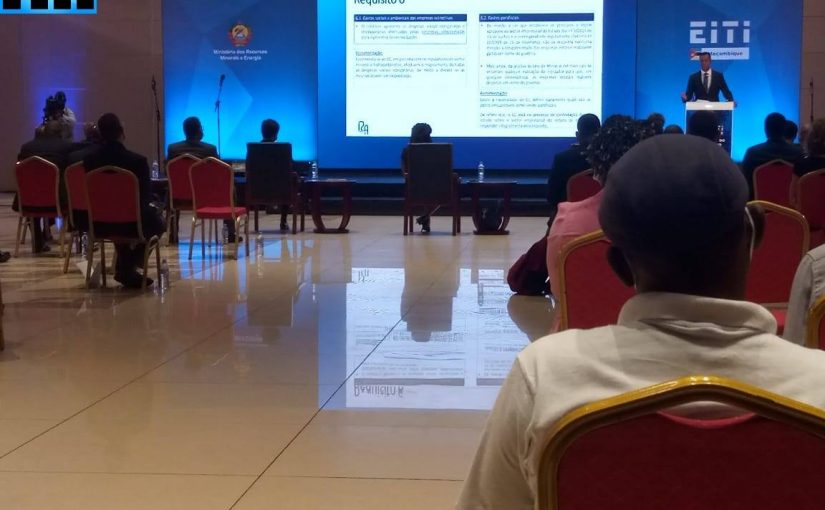Mozambique: Chapo discusses gas and agriculture with head of ENI - AIM report
Mozambique: “Significant progress” in the extractive industry, says report – Watch

Photo: Miramar
The Mozambican government this Monday (14.12) launched the ninth Extractive Industry Transparency Initiative report, claiming that the country has made significant progress, but pointing out that challenges remain.
The ninth Extractive Industry Transparency Initiative report, for 2019, released this Monday (14.12), claims that Mozambique is “making significant progress” in this sector.
The government of Filipe Nyusi highlights the improvement in transparency and accountability to the public, a path it says it has been following since 2008.
Despite the progress made, Minister of Mineral Resources and Energy Max Tonela acknowledged that challenges remain, citing the lack of access to information, a factor which could exacerbate concerns about lack of transparency. Minister Tonela also warned that this information gap may still create favourable conditions for conflicts of interest and acts of corruption.
“We therefore intend to go further and ensure that not only does Mozambique permanently comply with the initiative, but above all, to create conditions that promote a better understanding of how these resources are managed more accountably, and create conditions to attract more investments in the extractive sector,” he explained.
The Government reiterated that the extractive sector must be the driving force of industrialisation in Mozambique, stressing that mineral resources can be transformed into products with high added value.
Also read: Mozambique: Communities feel abandoned by mining companies
“In this sense, it is also important that citizens are duly informed of processes inherent to the exploitation of resources along their value chain. From licensing and contracting to sale and exports and the flow of revenues that it generates for both the state and for companies, and how these revenues are used for the communities affected,” the minister elaborated.
The low 2.75% quota which “then becomes confused”
The presentation of the report also gave rise to complaints from communities affected by the Brazilian mining company Vale in Tete and by the Australian Kenmare in the Tupuito region, Nampula.
“We don’t even have a road, we don’t have anything. Not even the resettlement money they told us they were looking into, neither that 2.75% figure they promised us. We are not seeing anything,” one community representative complained.
Civil society understands that the 2.75% allocation of the revenue generated by mining companies destined for local communities is a very low quota, Steven Ferrão, a representative of Association of Legal Assistance to Communities (AAJC) based in the province of Tete, said.
“It is important to give communities space to say what really concerns them regarding these sums of money, because it [the money] then becomes confused with what are the attributes and powers of the State at local level,” he warned.
“We know that there is a state budget for infrastructure projects, and then we see that that 2.75% is used for local infrastructure. That is why communities later raise the issue that they are not feeling any benefit.”












Leave a Reply
Be the First to Comment!
You must be logged in to post a comment.
You must be logged in to post a comment.